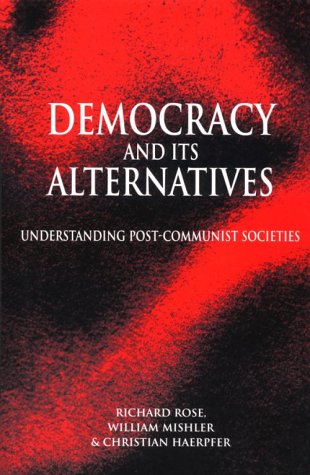The collapse of Communism has created the opportunity for democracy to spread from Prague to the Baltic and Black Seas. But the alternatives - dictatorship or totalitarian rule - are more in keeping with the traditions of Central Europe. For many post-Communist societies, democracy has come to be associated with inflation, unemployment, crime and corruption. Is it still true then, as Winston Churchill suggested in the 1940s, that people will accept democracy with all its faults because it is better than anything else? To find out, the authors of this study examine evidence from post-Communist societies in eastern Europe. Drawing on data from public opinion and exit polls, election results and interviews, they present testable hypotheses regarding regime change, consolidation and prospects for stabilization. They point out that the abrupt transition to democracy in post-Communist countries is normal; gradual evolution in the Anglo-American way is the exception to the rule. The volume offers a look at the process underway in nine eastern European countries: the Czech Republic; Hungary; Slovakia; Poland; Slovenia; Bulgaria; Romania; Belarus; and Ukraine.
Despite the many problems these post-Communist societies are experiencing in making the transition to a more open and democratic polity, the authors conclude that a little democracy is better than no democracy at all.
- ISBN10 0801860377
- ISBN13 9780801860379
- Publish Date 16 October 1998 (first published 1 October 1998)
- Publish Status Out of Stock
- Out of Print 14 September 2009
- Publish Country US
- Imprint Johns Hopkins University Press
- Format Hardcover
- Pages 272
- Language English
